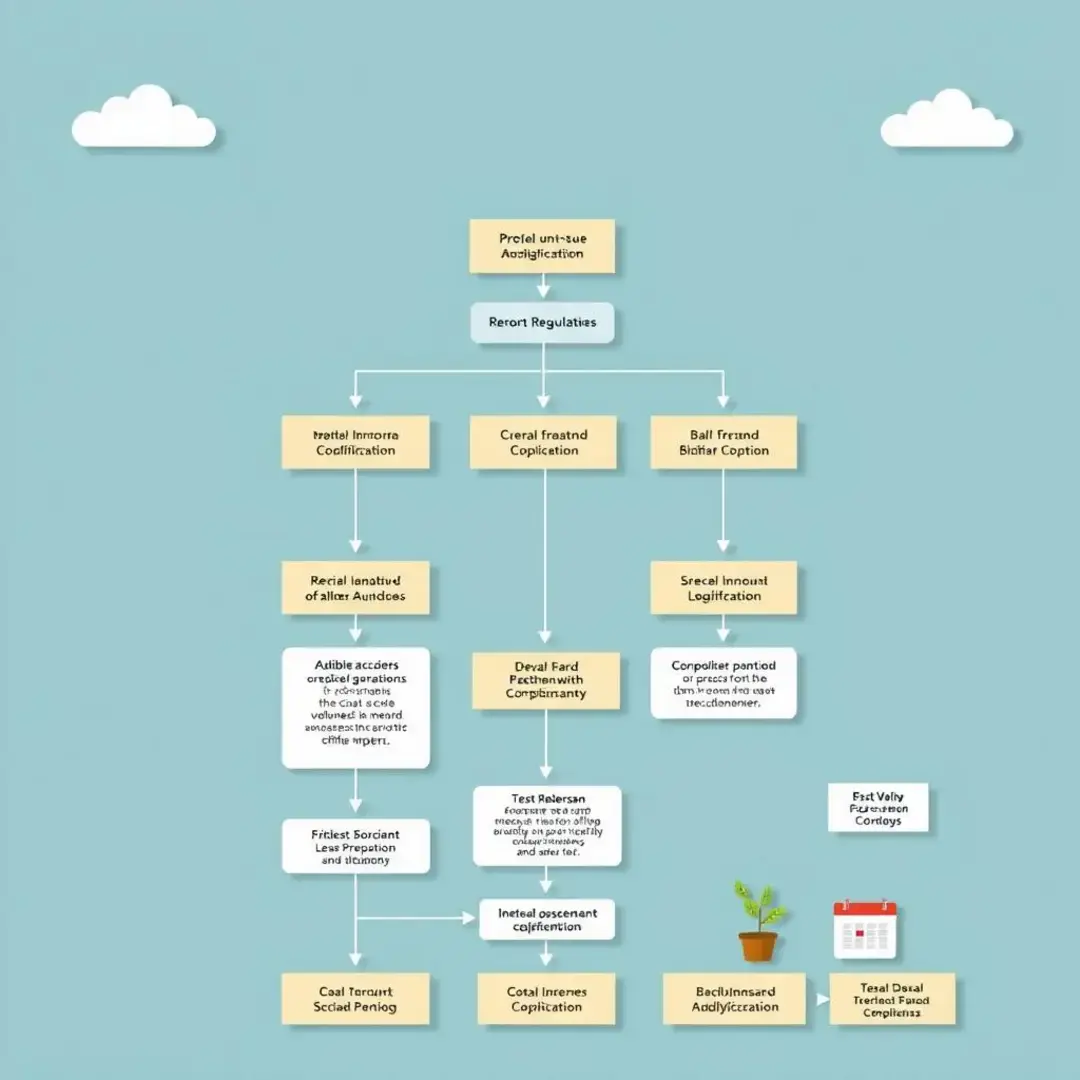Startup Compliance with Local, State, and Federal Laws
Navigating the complexities of multi-level regulations

Understanding the interplay of legal jurisdictions
Startups must grapple with a plethora of federal regulations that can significantly impact their operations. These regulations can range from tax laws and environmental protections to industry-specific codes. Compliance with federal laws is essential not just for legal operation but also for building a reputable brand. Understanding the implications of these laws can mean the difference between success and devastating setbacks for young businesses.
Each state has its own set of laws that can vary drastically, creating a complex web of requirements for startups. This includes everything from business registration and licensing to sales taxes and employee benefits. Failing to comply with state legislation can result in fines or even the dissolution of the business. It’s crucial for startups to not only understand these requirements but also to stay updated with any changes that may arise.
Local laws can often be the most overlooked aspect of compliance, yet they play a critical role in a startup’s operational landscape. Zoning laws, health and safety regulations, and even local business licenses can have direct implications on day-to-day activities. By ensuring compliance with local ordinances, startups can avoid potential legal issues that could hinder their growth. Developing a localized understanding of these regulations is essential for smooth operations.
Building a robust compliance strategy from the ground up
A thorough risk assessment is the cornerstone of an effective compliance strategy. Startups must take the time to identify all potential legal risks specific to their industry and operational model. This includes evaluating existing practices against applicable regulations. By understanding which areas pose the greatest risk, businesses can better allocate resources to mitigate these challenges and establish a proactive compliance framework.
Creating clear internal policies and procedures is vital for organizational compliance. These guidelines should reflect the specific legal requirements relevant to the startup’s activities while also fostering a culture of accountability. Well-documented processes ensure that all employees know their responsibilities regarding compliance, making it easier to adhere to both internal and external regulations.
Regular monitoring and reporting of compliance efforts are key to ensuring that policies are being followed. Startups should leverage technology to establish systems that track compliance and provide real-time reports on any discrepancies. This proactive approach allows businesses to address potential compliance issues before they escalate, ultimately safeguarding the organization from liability.
Key areas of compliance for high-growth startups

Data privacy and security
In an era where data breaches are increasingly common, startups must prioritize data privacy and security. Compliance with regulations like the General Data Protection Regulation (GDPR) and the California Consumer Privacy Act (CCPA) is not just a legal obligation, but also a matter of consumer trust. Failing to protect user data can lead to significant financial repercussions and loss of reputation, making this a top compliance concern for any startup handling personal information.
Startups should also focus on implementing strong cybersecurity measures as part of their compliance effort. This includes using encryption, secure authentication methods, and regular software updates to protect sensitive information. By establishing a proactive stance on cybersecurity, startups can minimize the risk of data breaches and ensure compliance with legal standards regarding data protection. A culture of security should be fostered within the organization to complement these technical measures.
Even with the best safeguards in place, data breaches can occur. Startups need to have a robust plan in place for managing breaches, including clear protocols for investigation and notification. Not only is timely notification legally required in many jurisdictions, but it is also a critical step in maintaining customer trust. The quicker a startup can respond to a breach, the better position it will be in to mitigate the damage caused.
Intellectual property protection
intellectual property (IP) is often a startup’s most valuable asset, making protection a high priority. Startups should seek to secure trademarks for brand names, patents for inventions, and copyrights for original works to safeguard their innovations. Understanding the nuances of IP law is crucial for navigating potential infringement issues effectively. The proactive management of intellectual property can serve as a key differentiator in competitive markets.
A solid IP management strategy not only protects a startup’s innovations but also enhances its value proposition to investors. This involves keeping detailed records of all IP assets and regularly reviewing and updating protection levels as the business grows. By taking a strategic approach to managing intellectual property, startups can better position themselves for future opportunities, including partnerships and acquisitions.
Enforcing IP rights is essential to maintaining the value of a startup’s innovations. When infringements occur, timely action is important to deter further violations and uphold brand integrity. Legal avenues and cease-and-desist letters can serve as crucial components in the enforcement toolkit. By being proactive about IP rights, startups can protect their assets while also fostering a marketplace that respects innovation.
Employment law and regulations
Employment law compliance is a multifaceted challenge for startups, especially regarding wage and hour regulations. Misclassifying employees can lead to significant penalties and back pay issues, making it essential for startups to understand federal, state, and local labor laws. Establishing clear payroll processes and regularly auditing classification practices can mitigate risks associated with noncompliance.
Compliance with Occupational Safety and Health Administration (OSHA) regulations is critical in ensuring the health and safety of employees. Startups should conduct regular safety audits and provide appropriate training to minimize workplace hazards. By prioritizing employee well-being and safety, companies not only comply with the law but also foster a productive work environment, reducing turnover and enhancing employee morale.
Understanding employee classifications is vital for startups to ensure compliance with employment laws. Differentiating between classifications, such as full-time, part-time, exempt, and non-exempt employees, impacts both benefits and pay structures. Offering comprehensive benefits packages can enhance recruitment and retention, but these must align with legal requirements to avoid costly missteps.
Staying ahead of the curve: proactive compliance management

Leveraging technology for compliance automation
With the rapid pace of technological advancements, many startups are now utilizing compliance management software to streamline their compliance initiatives. These tools aid in automating various processes, from risk assessments to policy management, saving time and reducing human error. By integrating these technological solutions, startups can enhance their compliance frameworks, allowing them to focus more on their core business objectives.
To achieve sustainable compliance, startups should aim to embed compliance practices into their everyday workflows. This means that compliance should not be seen as a separate department but rather as an integral part of every function within the organization. By doing so, startups cultivate a culture of compliance that permeates all aspects of their operations, leading to better overall adherence to laws and regulations.
Building a culture of compliance within the organization
Effective compliance starts with proper training of all employees on company policies and procedures. Regular training sessions can help ensure that staff understands their roles in maintaining compliance and what actions they must take in various scenarios. This not only minimizes the risk of violations but also empowers employees to be proactive participants in the compliance process.
Open communication is vital for fostering a culture of compliance. Establishing clear channels for reporting concerns or issues can prevent minor problems from escalating into significant legal challenges. Regular meetings and updates can create an atmosphere where compliance is valued and prioritized, thereby enhancing the overall integrity of the startup.
Adapting to evolving regulatory landscapes
Regulatory landscapes are continuously changing, and staying informed is crucial for ongoing compliance. Startups need to invest time and resources into monitoring updates to laws and regulations that may affect their operations. This proactive approach ensures that any needed adjustments in policies or procedures are made promptly, minimizing the risk of noncompliance.
A flexible compliance framework can help startups adapt quickly to regulatory changes. By incorporating adaptability into compliance strategies, businesses can pivot and modify their practices without significant disruptions. This kind of resilience not only keeps startups compliant but also positions them as leaders in innovation and adaptability within their industries.
When navigating the complexities of compliance law, seeking expert legal counsel can provide invaluable guidance. Legal professionals can offer insights into specific requirements, allow for smarter risk management, and provide support during audits or investigations. Startups must recognize the benefits of investing in legal expertise to ensure that they are fully compliant and well-informed about their obligations.
By understanding the intricacies of local, state, and federal laws, startups can not only navigate potential pitfalls but also establish a foundation for lasting success. Proactive compliance efforts will ultimately drive innovation, foster consumer trust, and set the stage for sustainable growth in today’s competitive marketplace.












